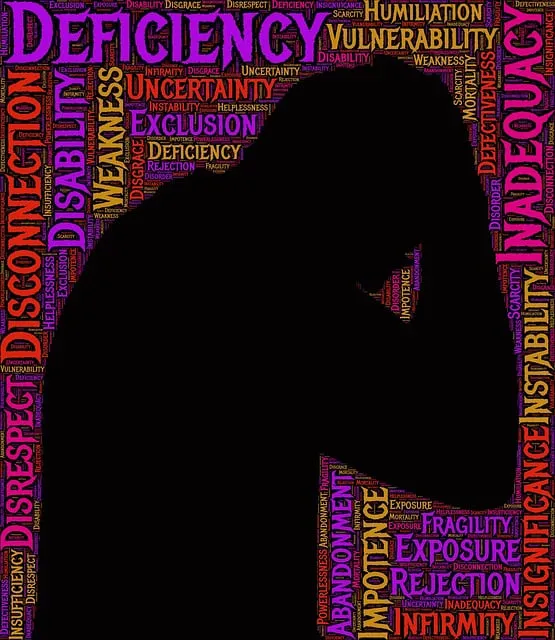The Boulder Kaiser Permanente mental health facility has pioneered an innovative Crisis Intervention Team (CIT) training program that goes beyond technical skills. Through hands-on learning, role-playing, and workshops integrating Mental Illness Stigma Reduction Efforts, the program equips professionals with effective communication, de-escalation, and trauma-informed care practices. This holistic approach, emphasizing emotional intelligence development and compassion cultivation, fosters a supportive environment for individuals facing mental health challenges. Continuous improvement is driven by strategic planning, evidence-based practices, regular evaluation, and feedback from staff and patients, ultimately enhancing patient outcomes.
Crisis intervention teams (CITS) are a crucial resource in mental health care, offering swift and effective support during acute crises. This article explores the importance of CIT training programs, highlighting innovative models like the Boulder Kaiser Permanente approach. We delve into implementing and evaluating these programs, emphasizing best practices for optimal impact. By examining real-world applications at a leading mental health facility, we provide insights that can revolutionize crisis response strategies.
- Understanding Crisis Intervention Teams: A Vital Resource in Mental Health Care
- The Boulder Kaiser Permanente Model: An Innovative Approach to Training
- Implementing and Evaluating Effective Crisis Intervention Team Programs
Understanding Crisis Intervention Teams: A Vital Resource in Mental Health Care

In the realm of mental health care, Crisis Intervention Teams (CITs) stand as a vital resource, offering immediate and specialized support to individuals facing severe emotional crises. These teams, often comprised of trained professionals from various disciplines, play a crucial role in communities such as the Boulder Kaiser Permanente mental health facility. By integrating CIT training into their programs, healthcare facilities like this one empower staff to effectively navigate complex situations, fostering better outcomes for patients experiencing acute distress or suicidal ideation.
The Inner Strength Development approach to crisis intervention emphasizes not just responding to immediate needs but also nurturing emotional intelligence and mental wellness. This holistic strategy ensures that individuals not only survive but thrive after a crisis. By equipping healthcare providers with the skills to recognize subtle cues, de-escalate situations, and offer compassionate care, CIT training contributes to creating a safer, more supportive environment for those seeking help.
The Boulder Kaiser Permanente Model: An Innovative Approach to Training

The Boulder Kaiser Permanente mental health facility has pioneered an innovative approach to crisis intervention team training programs, challenging traditional methods with a holistic and comprehensive strategy. This model focuses on not just equipping teams with technical skills, but also fostering a culture of empathy, understanding, and positive thinking. By integrating Mental Illness Stigma Reduction Efforts into the core curriculum, the program aims to break down barriers and promote inclusive mental health education.
The design of this training emphasizes hands-on learning experiences, role-playing scenarios, and interactive workshops that simulate real-world crisis situations. Participants gain valuable insights into effective communication strategies, de-escalation techniques, and trauma-informed care practices. Furthermore, the program encourages a collaborative environment where mental health professionals, first responders, and community members come together to share knowledge and build supportive networks. This inclusive approach ensures that everyone involved is equipped with the tools necessary to better support individuals facing mental health challenges.
Implementing and Evaluating Effective Crisis Intervention Team Programs

Implementing effective crisis intervention team (CIT) programs is a multifaceted process that requires careful planning and ongoing evaluation. At the Boulder Kaiser Permanente mental health facility, for instance, CIT training integrates cutting-edge techniques with evidence-based practices to equip healthcare professionals with the skills needed to de-escalate high-stress situations. This approach leverages the expertise of mental health specialists, emergency responders, and other relevant staff to foster a collaborative environment that prioritizes both patient safety and well-being.
Regular evaluation is crucial for ensuring the success of CIT programs. By assessing training outcomes, tracking incident response times, and gathering feedback from team members and individuals receiving care, facilities like Boulder Kaiser Permanente can identify areas for improvement. Incorporating Compassion Cultivation Practices and Social Skills Training into the curriculum enhances the emotional resilience of team members, enabling them to respond with empathy and understanding during crises. This holistic approach not only improves patient outcomes but also cultivates a culture of support and compassion within the healthcare organization.
Crisis intervention team (CIT) training programs, as demonstrated by the successful Boulder Kaiser Permanente model, play a pivotal role in enhancing mental health care. By equipping healthcare professionals with the skills to navigate and de-escalate crises effectively, these programs contribute significantly to improved patient outcomes. The innovative approach taken by facilities like the Boulder Kaiser Permanente mental health facility highlights the potential for revolutionizing crisis management within the industry. Implementing and evaluating CIT programs is essential to ensuring their effectiveness, ultimately fostering a safer and more supportive environment for both patients and caregivers.






